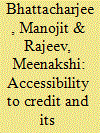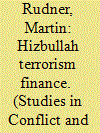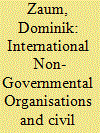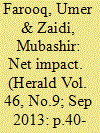| Srl | Item |
| 1 |
ID:
133884


|
|
|
|
|
| Publication |
2014.
|
| Summary/Abstract |
It is well known that around 80 per cent of farmers in India are in the small or marginal farmers group which requires financial resources on a regular basis for their farming activities. Needless to say, as these households do not possess adequate savings, accessibility to financial resources at reasonable terms and conditions from financial intermediaries becomes a crucial parameter for their productive activities and hence, in turn, their well-being. Based on the 59th round of household-level data from the Debt and Investment Survey and the Situation Assessment Survey (SAS) of farmers provided by the National Sample Survey Organisation (NSSO) of India, this article examines the nature of exclusion faced by farmer households in credit markets across selected prominent states of India. This is done by constructing an indicator, namely, the 'incidence of borrowing'. This article also tries to identify the factors that explain exclusion from access to financial resources by developing a methodology for the detection of credit exclusion. Our results show that the relation between the cost of credit (interest rate) and access to credit depends heavily on the extent of prevalence of informal lenders in a region.
|
|
|
|
|
|
|
|
|
|
|
|
|
|
|
|
| 2 |
ID:
128178


|
|
|
|
|
| Publication |
2012.
|
| Summary/Abstract |
The continuation of the conflict will only harm youth by stealing their energy, efforts, and financial resources that should be spent on creativity and education.
|
|
|
|
|
|
|
|
|
|
|
|
|
|
|
|
| 3 |
ID:
097780


|
|
|
|
|
| Publication |
2010.
|
| Summary/Abstract |
Hizbullah, which has been designated a terrorist entity in several international jurisdictions, depends upon a substantial mobilization of financial resources to support its complex, multi-faceted organizational apparatus, its domestic activities in Lebanon, and its far-reaching transnational operations. This study surveys Hizbullah's resourcing requirements, and examines the role of military assistance from Iran and Syria along with Hizbullah's own reliance on front organizations, clandestine networks, business enterprises, propaganda media, and local exactions to generate funding for operational activities. Particular attention is directed at the diversion of charitable contributions, the exploitation of non-governmental organizations (NGOs), involvement in criminal activities and contraband trade, and the money laundering mechanisms utilized to transfer funds to where they are required. It also reviews efforts by international authorities to staunch the flow of financial resources to terror groups, activities and operations, including their effect on Hizbullah terrorism finance.
|
|
|
|
|
|
|
|
|
|
|
|
|
|
|
|
| 4 |
ID:
086355


|
|
|
|
|
| Publication |
2009.
|
| Summary/Abstract |
The article examines the role of international non-governmental organisations (NGOs) in civil wars and the consequences of their presence for the dynamics of these conflicts. It argues that although NGOs can affect the dynamics of civil wars, their influence only partly derives from their non-state character. More important for their influence is the financial resources that they can command, which to a large extent derive from their close association with donor governments, as their implementing partners. This complex relationship between donor governments and NGOs has contributed to an increasingly political role of NGOs, and has undermined some of the benefits resulting from their non-state character.
|
|
|
|
|
|
|
|
|
|
|
|
|
|
|
|
| 5 |
ID:
122854


|
|
|